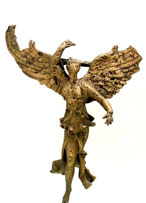| Author | |
|---|---|
| Epoch | 1926-1999 |
| Work | Lamentation (Elguja Maghradze, Two Novels, Tbilisi, 1984) |
| Type | |
| Quote | “The poet (Vergil, E. K.) extols Maecenas, Deities, Muses […] specially recalls the story of mythical Deucalion […] The poet, like the author of “the Nature of Objects”, shows great knowledge in the description […] of mythology […] He starts the second book with the address to Bacchus […] In this respect, he puts the incomparable Italy – the land of Saturn, the Great Mother of Harvests” in front of all the other countries […] In the third book Vergil […] brings the branches of palm tree, puts them at Caesar’s feet […] and speaks […] about Caesar’s glorious wars […] He addresses Maecenas in the fourth book too […] In short, “Georgics” – is a poetic encyclopedia on harvest and cattle breeding […] The poet (Vergil, - E. k.) is well familiar with the snowy side of the Asia Minor […] mentions the myths, which must have some links with Colchis, clouded in secrecy… Vergil’s “Bucolics” is a very prominent work […] this is a dream about the golden epoch, fabulous Arcadia […] Vergil’s Bucolics is created in the same style […] San Nazaro’s “Arcadia” of Neapolitan Vergil” […] the idyllic novel Diana” […] of the Spanish poet Jorge de Montemaior […] Imitation of Vergil, primarily his Bucolic poetry became widespread in XVIII-XIX Russian poetry too”. (pg. 265-268) |
| Term |
|

| Comment |
|---|

